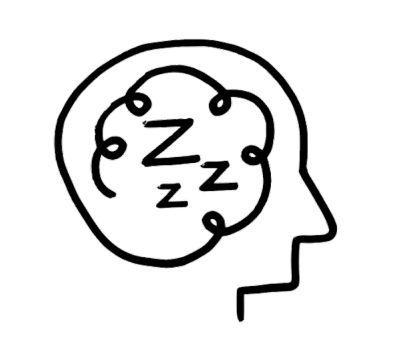Understanding the feelings and effects of grief
Grief can bring up a wide range of unexpected and uncomfortable feelings and emotions. They might start right before or right after a loss, or they might come up months or years later.
For example, if you lost a parent when you were young, you might feel grief again during big life events like graduating from school, getting married, or having a baby.
Remember, grieving is a personal journey that happens on your own timeline. There’s no right or wrong way to do it. Your feelings are influenced by how the loss has affected you, your past experiences with grief, and the support you have available to you.
If you’re feeling stressed or overwhelmed, it’s important to acknowledge that you are going through something really hard. Know that things will get better and you will find a way to move forward.
Understanding how you’re experiencing grief can help you find the right short-term coping strategies and long-term support options that are right for you.
On this page, you’ll find information on:
- How you might be feeling when grieving
- Impacts of grief on your mind and body
- Changes you might notice in your daily life
- Navigating grief and your sense of self.
Scroll down to learn more.
How you might be feeling when grieving
At any point in the grieving process, you might experience:
- Anger and irritability
- Confusion and shock
- Despair
- Frustration
- Guilt
- Happiness
- Loneliness
- Regret
- Sadness
- Yearning
- Relief (If the person was struggling with an injury or illness, it’s common to feel relieved that they’re no longer in pain.)
It’s normal to feel some, none, or all of these feelings at different times and levels. It’s also normal to find yourself processing your grief for weeks, months, or even years.
Impacts of grief on your mind and body
Grief can affect more than just the way you feel. It can also impact the way your mind and body works.
For example, you may notice that you are experiencing:
- Trouble focusing
- Memory issues
- Difficulty organising your thoughts or solving problems
- Feeling overwhelmed by decisions, even small ones
- Repetitive or intrusive thoughts
- Anxiety and panic
- Physical symptoms.

How grief can influence your daily life
Depending on where you are in the grieving process, you might notice changes in how you act. You may not feel like socialising or you may be keeping yourself busy to avoid difficult emotions. Both of these responses are completely normal and, to some extent, can be helpful ways to cope with grief.
However, avoiding emotions or withdrawing from the world for too long can lead to loneliness, isolation, stress, burnout, or the use of unhealthy coping mechanisms like alcohol and other substance misuse.
Below, you can read about a few more ways grief can influence your actions and impact your relationships and social connections.
- Grief and loss can lead to:
- Avoidance of things that remind you of the person or thing you lost
- Constant searching for reminders or signs of the person or thing you lost
- Relationship problems, especially if you don’t understand each other’s grief
- Using work, school, and social plans as a distraction
- Disruption of daily habits and routine
- Comparing other people to the one you lost
- Jealousy and resentment of those who haven’t experienced loss
- Frequent crying
- Restlessness and sleep problems
- Withdrawal, loneliness, and isolation
- Difficulty communicating
- Dependence on others
- Self-harm
- Substance misuse.
If you feel like you’ve tried coping strategies and still aren’t able to manage day-to-day life or complete regular tasks, you might be experiencing complicated grief.
If not addressed, this can lead to longer-term mental health struggles like anxiety, depression, and suicidal thoughts.
Navigating grief and your sense of self
When grieving, it’s common to suddenly feel disconnected from the world as you once knew it.
By nature, humans are social creatures who depend on connection for our survival. While we need connection to others, we also need connection to ourselves.
Our sense of self often comes from how we feel seen and acknowledged by others. When we lose people, job roles, or specific abilities that helped us feel whole, we can also lose part of our identity.
As a result, you might find yourself questioning your life choices, purpose, abilities, and future plans. As confusing and overwhelming as this period can be, it’s often a time of deep self-reflection that can lead to a meaningful transformation. It might be hard to see right now, but you are a whole person no matter who, what, or where was lost.
Maintaining healthy self-esteem while grieving is an important part of taking care of your mental health and wellbeing. It’s also a key way you’ll be able to work through the grieving process and ultimately find ways to move forward. You can learn more about self-esteem and how to improve yours in the article below.
It’s important not to let anyone, including your own inner voice, make you feel guilty for having both good and bad days or doing what you need to cope.
This might involve focusing on self-care, reaching out to a support service like Griefline, taking some time off your usual responsibilities, or finding coping strategies that allow you to express and process your grief.
“When they say time heals all wounds, it doesn’t - but eventually, it changes and it walks next to you ... It’s always there, and you acknowledge your grief, but it’s a companion rather than an all-consuming feeling.”
On the next page, you can learn about tips and strategies for coping with grief and loss.







